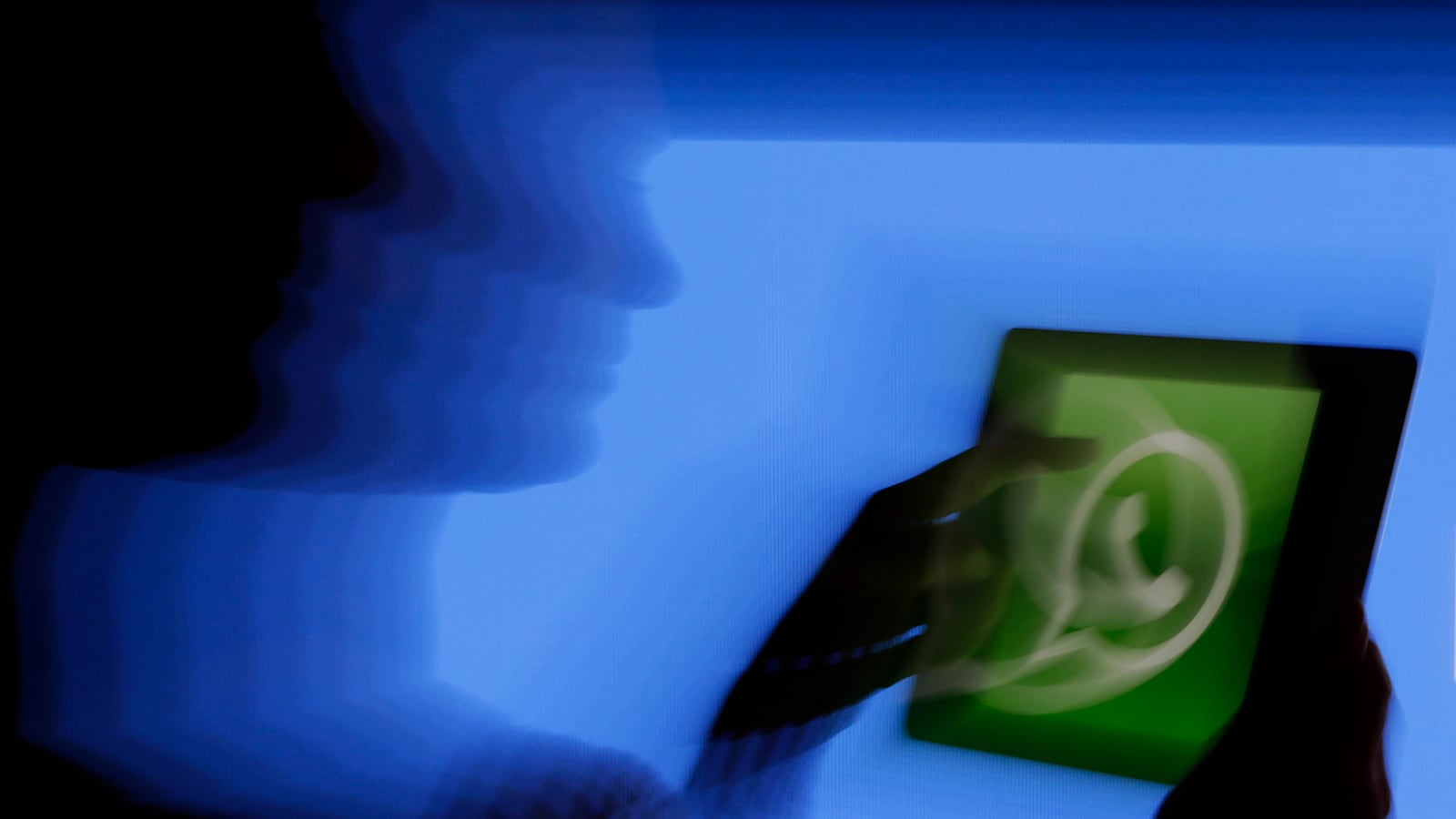This week the biggest news coming from both Ukraine and Silicon Valley had one thing in common. His name was Jan Koum—a Ukrainian-born developer who happens to be tech valley’s latest, and possibly most surprising, billionaire. On Wednesday, Facebook announced it had purchased his messaging company, WhatsApp, for a whooping $19 billion. Koum, who owns 45 percent of WhatsApp, is now personally worth $6.8 billion. His is the classic immigrant rags-to-riches tale of that much-sought fantasy, the American Dream.

The 37-year-old was raised in a village outside of Kiev by his mother, a housewife, and his father, a construction manager. His house didn’t have hot water, and his school didn’t have an indoor bathroom. As anti-Semitism roiled Eastern Europe, a 16-year-old Koum and his mother left for Mountain View, CA, a setting that would foster his future endeavors. But life wasn’t much easier there, according an interview he gave Forbes. Both he and his mother worked odd jobs until she was diagnosed with cancer and the family scraped by on disability payments and food stamps.
A self-taught tech whiz who didn’t even have a computer until he was 19, Koum dropped out of college in Zuckerberg-esque fashion to work for a newish Yahoo in the mid-1990s. Unenthused, he left in 2007 and applied for a job at Facebook. He was rejected—ironically—and two years later he had registered WhatsApp Inc. in the hopes of building a messaging app with Facebook- and AIM-like status updates. By the time it was released, it was the first free texting service other than BlackBerry’s once-hot BBM platform. It was also, at the time, the only one to work via the user’s phone number.
With $250,000 in seed money, the app began to grow, and by 2010, when Koum’s bank account was drained, it finally began earning about $5,000 a month. Two years and $8 million in additional investments later, and the app was topping charts in the iTunes App Store. Now, 450 million users take advantage of the free international messaging service. Their combined messages have climbed to nearly the rate of the number of SMS texts sent daily. And the company operates with only 32 engineers. “I want to do one thing, and do it well,” Koum told Forbes.

The company's announcement on Wednesday comes as Ukraine experienced the bloodiest week of its three-month-old uprising. At least 100 protesters were killed in the volatile capital of Kiev on Tuesday and Wednesday, and governments across the Western world responded with strongly worded threats of repercussions. As WhatsApp was making its happy announcement, pundits theorized on the outbreak of civil war in Russia’s backyard.
At the end of January, as the situation in Ukraine continued to escalate, Koum spoke out publicly on Twitter, posting photos from the revolution, and “praying for peace and quick resolution to the crisis #ukraine #freedom.”
Though his early days were tough, his Soviet roots proved formative. According to the company’s early investor, Jim Goetz, Koum’s Ukrainian background was a foundation for the company’s ethos. As a child, the Koum family eschewed using telephones due to fears they were being tapped. Now, WhatsApp is notable in that it doesn’t collect any personal information and doesn’t hold messages on its servers.
“It’s a decidedly contrarian approach shaped by Jan’s experience growing up in a communist country with a secret police,” Goetz noted in a blog post. “Jan’s childhood made him appreciate communication that was not bugged or taped.”
As Koum once told Wired of growing up in Ukraine: “Society was extremely closed off: you can read 1984, but living there was experiencing it.”
Even now, thousands of miles and decades away from the Soviet-style Big Brother, Orwellian fears have resurfaced stronger than ever in the U.S., making the app's ephemeral system particularly attractive.
There must be something in the Eastern European air. Koum isn’t the only Silicon Valley big-shot from the area: Paypal co-founder Max Levchin was also born in Ukraine, similarly leaving during a rise in anti-Semitism, and Google co-founder Sergey Brin is from Russia.
But unlike his fellow immigrants, who mostly came from comfortable backgrounds, Koum made his name and wealth with a hand of cards dealt firmly against the odds. His meteoric rise from welfare dependent to billionaire was celebrated on Wednesday when Koum signed the Facebook acquisition deal, propping the papers on the door of his old welfare office—just a few blocks from WhatsApp’s offices in Mountain View




